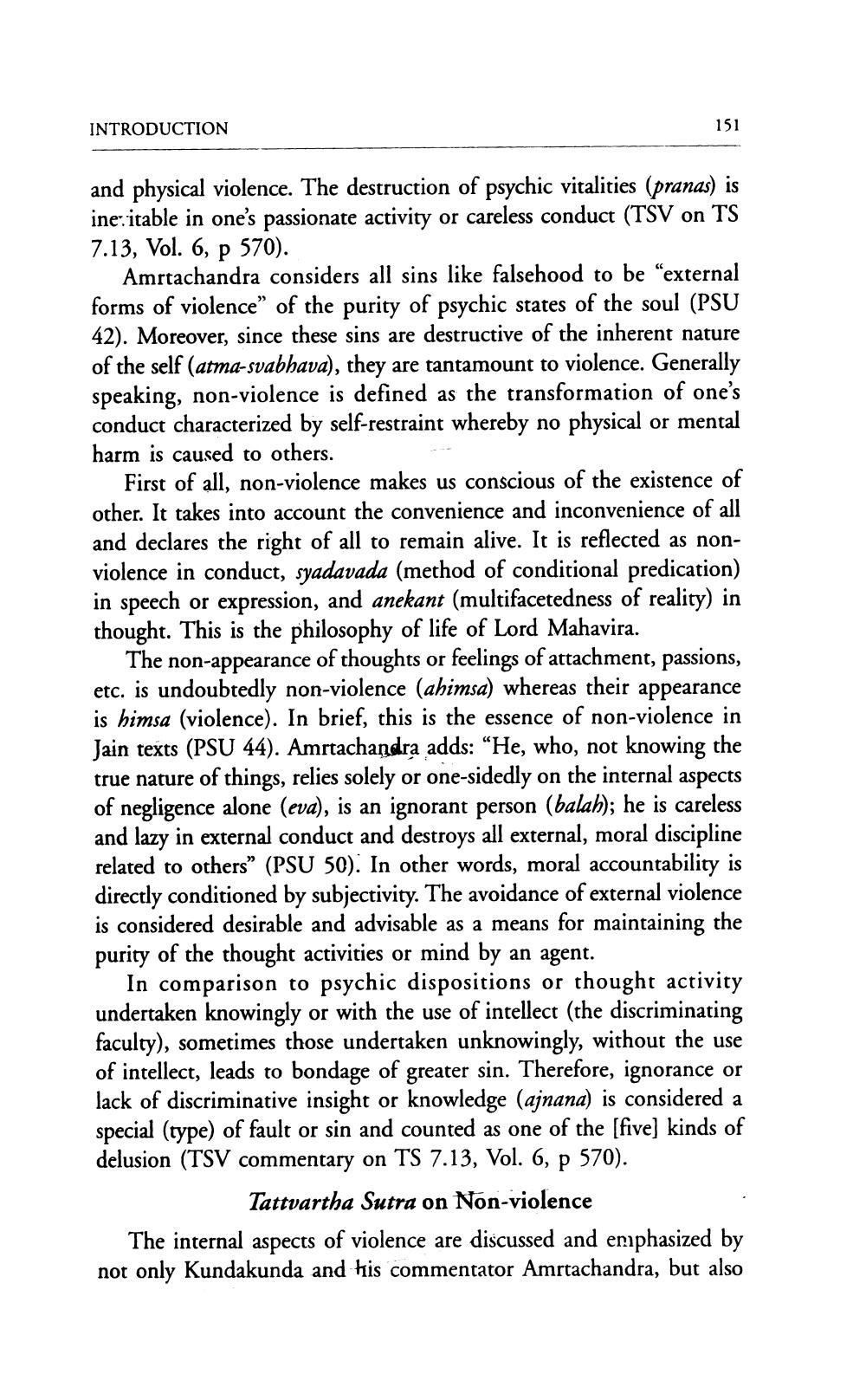________________
INTRODUCTION
151
and physical violence. The destruction of psychic vitalities (pranas) is ine:itable in one's passionate activity or careless conduct (TSV on TS 7.13, Vol. 6, p 570).
Amrtachandra considers all sins like falsehood to be "external forms of violence" of the purity of psychic states of the soul (PSU 42). Moreover, since these sins are destructive of the inherent nature of the self (atma-svabhava), they are tantamount to violence. Generally speaking, non-violence is defined as the transformation of one's conduct characterized by self-restraint whereby no physical or mental harm is caused to others.
First of all, non-violence makes us conscious of the existence of other. It takes into account the convenience and inconvenience of all and declares the right of all to remain alive. It is reflected as nonviolence in conduct, syadavada (method of conditional predication) in speech or expression, and anekant (multifacetedness of reality) in thought. This is the philosophy of life of Lord Mahavira.
The non-appearance of thoughts or feelings of attachment, passions, etc. is undoubtedly non-violence (ahimsa) whereas their appearance is himsa (violence). In brief, this is the essence of non-violence in Jain texts (PSU 44). Amrtachandra adds: "He, who, not knowing the true nature of things, relies solely or one-sidedly on the internal aspects of negligence alone (eva), is an ignorant person (balah); he is careless and lazy in external conduct and destroys all external, moral discipline related to others" (PSU 50). In other words, moral accountability is directly conditioned by subjectivity. The avoidance of external violence is considered desirable and advisable as a means for maintaining the purity of the thought activities or mind by an agent.
In comparison to psychic dispositions or thought activity undertaken knowingly or with the use of intellect (the discriminating faculty), sometimes those undertaken unknowingly, without the use of intellect, leads to bondage of greater sin. Therefore, ignorance or lack of discriminative insight or knowledge (ajnana) is considered a special (type) of fault or sin and counted as one of the [five] kinds of delusion (TSV commentary on TS 7.13, Vol. 6, p 570).
Tattvartha Sutra on Non-violence
The internal aspects of violence are discussed and emphasized by not only Kundakunda and his commentator Amrtachandra, but also




